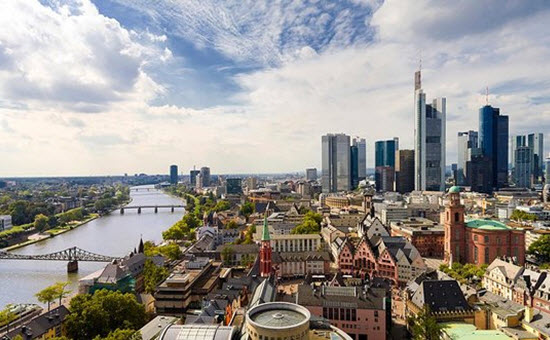Since 1972, Britain has been part of the European continent. I remember the opening very well. I was a kid, living in London. The new openness meant we could afford oranges from Spain. Every week, an old French farmer would also peddle through London with strings of onions hanging from his bicycle. I thought the arrangement was unbelievably cool and more than romantic.
Fast forward forty years, and the situation is now reversing, and that is not only a shame, but I predict it will have dire and unforeseen consequences for the British.
The England I knew as a child was a fascinating place. It was a country struggling to keep together the concept of a social state, still wounded by the war, and losing the last pieces of its Empire. You could still travel to central parts of London and see unreconstructed bomb sites left over from the war. I will never forget seeing one, incongruent with the bustling scenes around it, and asking my father what it was from. He answered “The Blitz.”
Today, of course, London is a different city, and England is a different country – transformed, much like the U.S. into an economy which may be again calling itself “shared” – but in fact is premised on something very different.
After WWII, most European countries, as well as significant parts of the U.S., believed the future was only attainable by creating a strong social platform upon which the other parts of life would work. “Regular” jobs. A middle class life. A steady pay check. A system to take care of the sick. Retirement funds to take care of the old.
That system is gone now – or at least fading, and we are on the cusp of something else. Thus the explosion of start-ups, start-up culture and the new entrepreneurialism. This is part of the reason that start-ups have thrived in the U.K. – particularly high tech start-ups. The country has been, for a generation, trying to define itself. There is no way the island can survive independently. No country can. The British train system uses German trains. The auto industry is hurting. Oil is an uncertain energy source. Overpriced British real estate in London fueled by foreign investment does not an economy make. Britain, right now, is much like the U.S. Casting off the old very quickly in an attempt to create something that works better (although for whom and how many is still an open question).
However start-up culture is not the same everywhere.
Across the Channel, things are different. There is more social integration and infrastructure. Every country east of France still has a streetcar system that works. There are still national healthcare systems which strive to provide health care for the oldest and sickest. And the approach to start-ups is a lot more cautious – in part because things still work the way they were designed to. People here just do not understand how, for example, a presidential candidate who did not pay his taxes for 20 years can even be credible.
This reliance on a broader superstructure, which the Europeans are loath to destroy in search of something “new”, does not mean there is no innovation. As a professor of mine said to me recently, mobile payments (a particularly hot area of Fintech innovation elsewhere) are just not a priority in Germany because of the continual upgrades and improvements to the customer banking experience (also known as SEPA), that has already created a workable middle way.
However, Europeans in general and Germans in particular, are not deaf to innovation. They too are looking for ways to innovate as the older systems become increasingly outdated. It is just moving a bit more slowly here – and frankly a bit more humanely. Chaos might provide a lot of exciting booms, but that is not a place where most people want to live their lives. And as Britain shuts its doors to the rest of the continent, there are many now who are looking increasingly to both Berlin and increasingly Frankfurt, to be a new platform for innovation.
In Frankfurt, there is a steadier (and much cheaper) platform for innovation in the form of cheap rent, transportation and an overall standard of living. And it is provided by the security and infrastructure that comes when countries do not throw the baby out with the bathwater in search for “something” if not “anything” new.
Marguerite Arnold is an entrepreneur, author and third semester EMBA candidate at the Frankfurt School of Finance and Management.
(Image Source: BBC and Tripadvisor)

